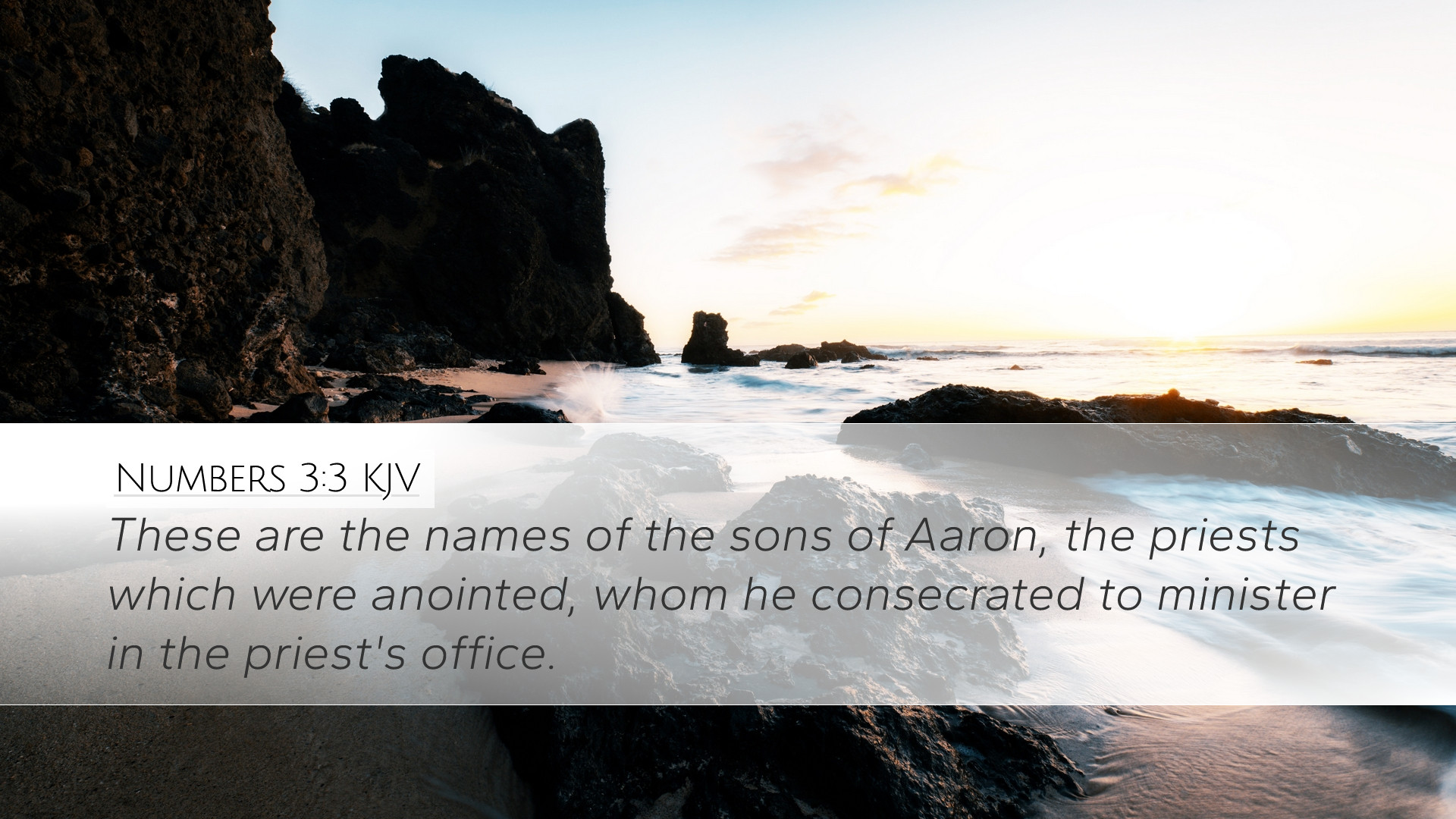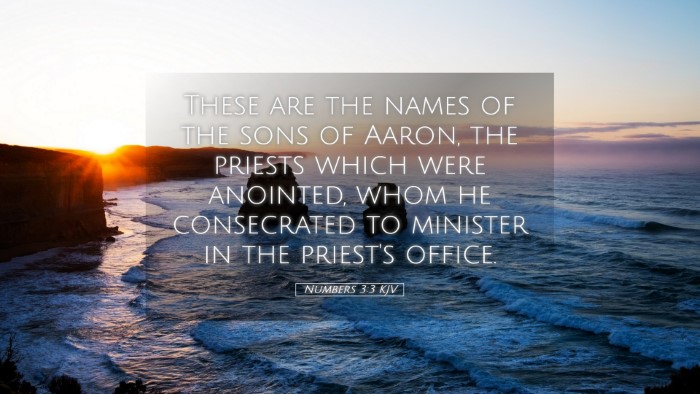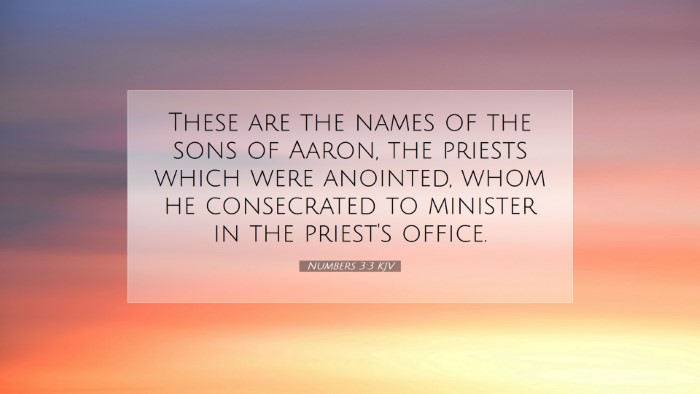Commentary on Numbers 3:3
Numbers 3:3 states: "These are the names of the sons of Aaron, the priests which were anointed, whom he consecrated to minister in the priest's office."
This verse is significant as it highlights the foundation of the priestly ministry in Israel, outlining the specific roles and responsibilities designated to Aaron's sons.
Contextual Overview
The book of Numbers is a narrative of Israel's journey from Sinai to the Promised Land, focusing significantly on the organization and the ceremonial aspects of the Israelite community.
In this context, the role of the priesthood becomes crucial. The tribe of Levi is set apart for service to God, with Aaron and his sons receiving special honor as the high priestly line.
Insights from Public Domain Commentaries
Matthew Henry's Commentary
Matthew Henry emphasizes the importance of the priesthood's establishment by Aaron and his sons as a divine ordinance. He notes that the anointing and consecration signify not only their appointment but also their empowerment for the holy office.
The tasks that the priests were to undertake were of great significance as they were mediators between God and the people of Israel. Henry points out:
- The Anointing: This act signifies separation for God's service, indicating that the Aaronic priesthood was intended for sacred duties.
- The Consecration: To consecrate means to make something holy, which highlights the necessity of purity and divine ordination in the priestly ministry.
- Ministering Roles: Each of Aaron's sons had specific roles, reinforcing the notion of order and organization in their ministry.
Albert Barnes' Notes on the Bible
Albert Barnes elaborates on the theological implications of the verse, suggesting that the names of the individuals listed represent not only their identities but also the continuity of worship and service in the community.
Barnes makes several key observations:
- Historical Context: The naming of Aaron’s sons points to God's specific choices and appointments throughout Israel's history, showcasing His sovereignty.
- Symbolism of Priestly Roles: Each son symbolizes a different aspect of service to God, pointing towards the multifaceted nature of worship.
- Implications for the Community: Their consecration serves as a model for holiness that the entire community is called to emulate.
Adam Clarke's Commentary
Adam Clarke provides a detailed analysis of the significance of the priesthood within the context of Israel's covenant with God. He outlines:
- Covenantal Significance: The priestly office is rooted in God’s covenant with Israel, and the roles of Aaron's sons were essential to maintaining the relationship between God and His people.
- Importance of Anointing: Clarke notes that anointing not only signifies authority but also the divine endorsement of the individual’s role in sacred tasks.
- Ethical Implications: Their function required a high standard of morality and ethical behavior, essential for leading the people in worship.
Theological Reflections
The significance of Numbers 3:3 extends beyond the historic context; it reveals deeper truths about God's expectations for spiritual leadership.
The anointing highlights a necessity of divine selection, reminding us that spiritual leaders are called to a sacred purpose. There are vital theological themes that emerge:
- Substitutionary Role: The priests represent the people before God, a foreshadowing of Christ's ultimate high priestly role in the New Testament.
- Community Holiness: The holiness of the priests reflects God's call for His people to be a holy nation, emphasizing the importance of communal adherence to divine standards.
- Leadership Accountability: The anointed leaders were held to a higher standard, indicating that those called to lead must possess integrity and righteousness.
Practical Applications
For contemporary pastors and church leaders, this verse serves as a profound reminder of the seriousness of their calling. The implications of priestly anointing and service are applicable in the church today:
- Embrace the Call: Like Aaron's sons, modern leaders must embrace their anointing, understanding that they are set apart to lead and serve.
- Commit to Holiness: The life of a leader should reflect Christ-like qualities, as they represent God to the congregation.
- Focus on Service: Leadership is service-oriented; pastors are called to minister to their congregations, teaching and guiding them in faith.
Conclusion
Numbers 3:3 encapsulates the divine appointment of the priesthood, emphasizing the sacred responsibility placed upon Aaron and his sons.
The implications of this verse reach far into the practices of worship and service expected of modern-day believers and leaders alike.
Through understanding the significance of their consecration and roles, pastors and theologians can appreciate the depth of God's standards for His leaders and the holy calling to which they have been appointed.


